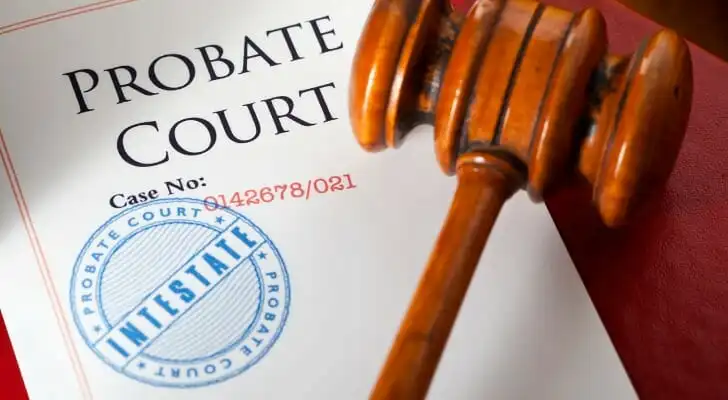
Uniform Probate Code (UPC) ideally standardizes the various state laws relating to wills and trusts. It also ideally simplifies the probate process. However, only a handful of states have use it. Probate can be a be a time-consuming process, and Uniform Probate Code, might shorten probate time.
Do you have questions about estate planning? Speak with a fiduciary financial advisor today.
What Is Probate?
Probate is the process by which a court confirms and finalizes the contents of a will. It deals with the legal validity of wills, the probate process, creation of trust, and other related concept. Each state writes its own probate law, so it varies by state. The probate laws in each state often contain titles with wording like “Trust and Fiduciaries,” “Decedent’s Code,” Estate Administration,” and the “Uniform Probate Code.”
In general, the probate process in each state is fairly similar. First, you open an estate, submit a will, and determine heirs. You also appoint a personal representative or executor. Secondly, the executor then takes possession and control of the decedent’s (person who died and is presumably leaving their assets to someone else) assets during the probate process. The executor cancel assets, if necessary, to satisfy claims. Then, if necessary, the estate can protect surviving family members. Maybe a family receives an allowance, fixes homestead rights or has personal property exempted.
The executor must pay taxes and creditors. However, they also can deny creditors’ claims. Meanwhile, the executor must file any applicable tax returns, namely decedent’s final income tax return, estate and fiduciary tax returns. Estate assets typically pay off all taxes. Finally, the executor distributes assets among all beneficiaries. However, they must first pay the administration expenses, creditors’ claims and taxes.
Probate Timing
Probate begins when the testator or decedent dies. Some states have a deadline of a few years for probating a decedent’s will. Meanwhile, other states have no deadline. The impact of this is that if a will is not found until after the deadline has passed, the will is invalid and cannot undo the probate process.
For example, if a parent of three living children dies and no one can find a will, the probate process occurs with the assumption that there is no will. The probate process occurs and is completed, and the parent’s money is then split equally among the children. If a will is found after the deadline passes and it wills all the money to just one of the three children, it is invalid because the deadline has passed. In states with the statute of limitations, it runs up to three years after the decedent’s death.
States that Have Adopted Uniform Probate Code

Uniform Probate Code was first created in 1969 by the National Conference of Commissioners on Uniform State Laws (NCCUSL) and was amended in 1990 as a model code that states could adopt to standardize probate laws. The entire Uniform Probate Code has been adopted by 18 states. Other states have adopted parts of the Uniform Probate Code, but it has not become a standardized law across all fifty states.
- Alaska
- Arizona
- Colorado
- Florida
- Hawaii
- Idaho
- Maine
- Massachusetts
- Michigan
- Minnesota
- Montana
- Nebraska
- New Jersey
- New Mexico
- North Dakota
- South Carolina
- South Dakota
- Utah
Contents of the Uniform Probate Code
There are seven main articles within the UPC. Article I covers general provisions, definitions, and jurisdictional topics. Article II deals with wills and what happens if a person dies without leaving a will, also known as intestate succession.
Article III covers the probate of wills and estate administration. It also provides for supervised and unsupervised administration of probate. In estates without disputes among the beneficiaries, without many assets, unsupervised administration is allowed. In the case of unsupervised administration, the executor of the will, also known as a “Personal Representative” within the UPC, handles the probate process without direct supervision from the probate court. The executor handles the probate process by filing a series of simple forms with the probate court. Unsupervised administration simplifies and speeds up the process, and as a result, also makes it cheaper. In addition, probate courts are able to focus their efforts on estates with contested matters or substantial assets, where supervised administration is necessary.
Article IV is about estates in probate in states outside of where the decedent resided. Article V extends protections for people under disability and their property. Article VI governs non-probate transfers of property. Article VII has comprehensive provisions about trust administration.
Opposition to the UPC
Article III is a sticking point for attorneys and bonding companies. Attorneys have opposed the simplified process of unsupervised administration. It may be because there would be fewer cases for attorneys if simple, uncontested cases only required filing simple forms. Bonding companies would also lose business because unsupervised probate does not require a bond to be posted.
Bottom Line

The Uniform Probate Code hasn’t solved its target problem. In many cases, it hasn’t made probate less complicated for the rest of us. That means you should look into your state’s law code and see what aspects of UPC, if any, it has adopted. You may also want to consider hiring a lawyer for particularly complicated cases.
Estate Planning Tips
- If you’re worried about estate planning for yourself or a family member, a financial advisor may be able to help. Finding a financial advisor doesn’t have to be hard. SmartAsset’s free tool matches you with up to three vetted financial advisors who serve your area, and you can have a free introductory call with your advisor matches to decide which one you feel is right for you. If you’re ready to find an advisor who can help you achieve your financial goals, get started now.
- Look into estate and inheritance taxes. If the estate you’re concerned about is worth less than the federal tax’s high annual exemption, you won’t need to worry about it. Some states do have their own estate and inheritance taxes, though, so be cognizant of those as well.
Photo credit: ©iStock.com/stocknshares, ©iStock.com/Ilya Burdun, ©iStock.com/Casper1774Studio